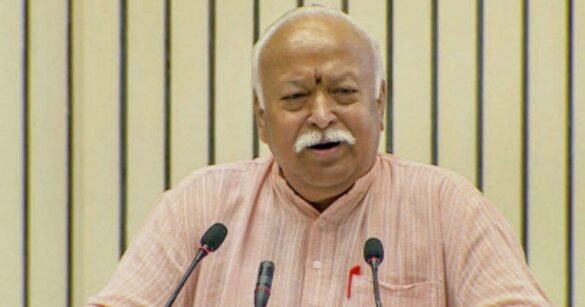Calls for Justice, Harmony, and National Unity in Rare Dialogue
New Delhi, India – Prominent Muslim leaders, scholars, and imams from across India recently held a dialogue with Rashtriya Swayamsevak Sangh (RSS) chief Mohan Bhagwat, raising critical concerns affecting the community. The meeting was marked by openness, mutual respect, and a focus on national unity.
Among the most urgent issues discussed were:
- Bulldozer actions disproportionately affecting Muslim neighborhoods
- Mob lynchings and violence linked to cow protection
- Rising communal tensions over shop signs and symbols
Muslim Leaders Suggest Declaring Cow as National Animal
In an effort to address the recurring conflicts over cow-related violence, several Muslim participants proposed a unique solution — officially declaring the cow as India’s national animal. They argued this move could help depoliticize the issue and reduce communal flashpoints.
They urged RSS chief Bhagwat to use his influence over the government to support such measures and promote peace.
Quran Recitation Sets Tone for Respectful Dialogue
The session began with a recitation of the Quran, followed by its translation in Hindi — a symbolic gesture aimed at fostering interfaith understanding. This tone of respect laid the foundation for constructive discussion.
One of the key participants, Firoz Bakht Ahmed, former Chancellor of Maulana Azad National Urdu University and grandnephew of Maulana Abul Kalam Azad, emphasized the importance of closing the trust gap between Hindus and Muslims.
Clarifying the Waqf Amendment Act: Fighting Misinformation
Ahmed highlighted the Waqf Amendment Act as a misunderstood reform. While the government’s goal was to curb corruption in Waqf properties, misinformation led many Muslims to fear that mosques and graveyards were under threat.
Ahmed stated that this perception could have been avoided. He suggested that the government should have immediately used reclaimed Waqf land to build hostels for poor students and widows. That, he said, would have demonstrated genuine concern and built trust among ordinary Muslims.
Rethinking Political Strategy: A Call for Pragmatism
Ahmed also encouraged India’s Muslims to reflect on their political engagement. He warned against the common practice of voting solely to defeat BJP candidates, noting that such strategies often backfire, leaving Muslim-majority areas underdeveloped.
Instead, he recommended a more pragmatic approach — one that focuses on dialogue, cooperation, and holding all political leaders accountable for development.
Bhagwat Praised for Peaceful Messaging
Speaking about Mohan Bhagwat, Ahmed described him as a spiritual, peace-loving leader who has consistently spoken about unity. He recalled Bhagwat’s statement that “Hindus and Muslims share the same DNA” and that India’s identity is incomplete without Muslim contributions.
Ahmed further quoted Bhagwat’s message to “bury the past” and work toward a unified and modern India, free from religious tension.
Shared Future: Muslims and Hindus as Equal Partners in India’s Growth
In his closing remarks, Ahmed underlined that both BJP and India’s Muslim population are crucial to the nation’s future. He noted that for India to rise as a “Vishva Guru” or global leader under Prime Minister Narendra Modi, it must ensure fair treatment, security, and opportunity for Muslims.
He concluded powerfully, saying:
“A Muslim’s best friend is a Hindu, and the best country for him is India. Likewise, Hindus must trust that Muslims are equally patriotic.”


